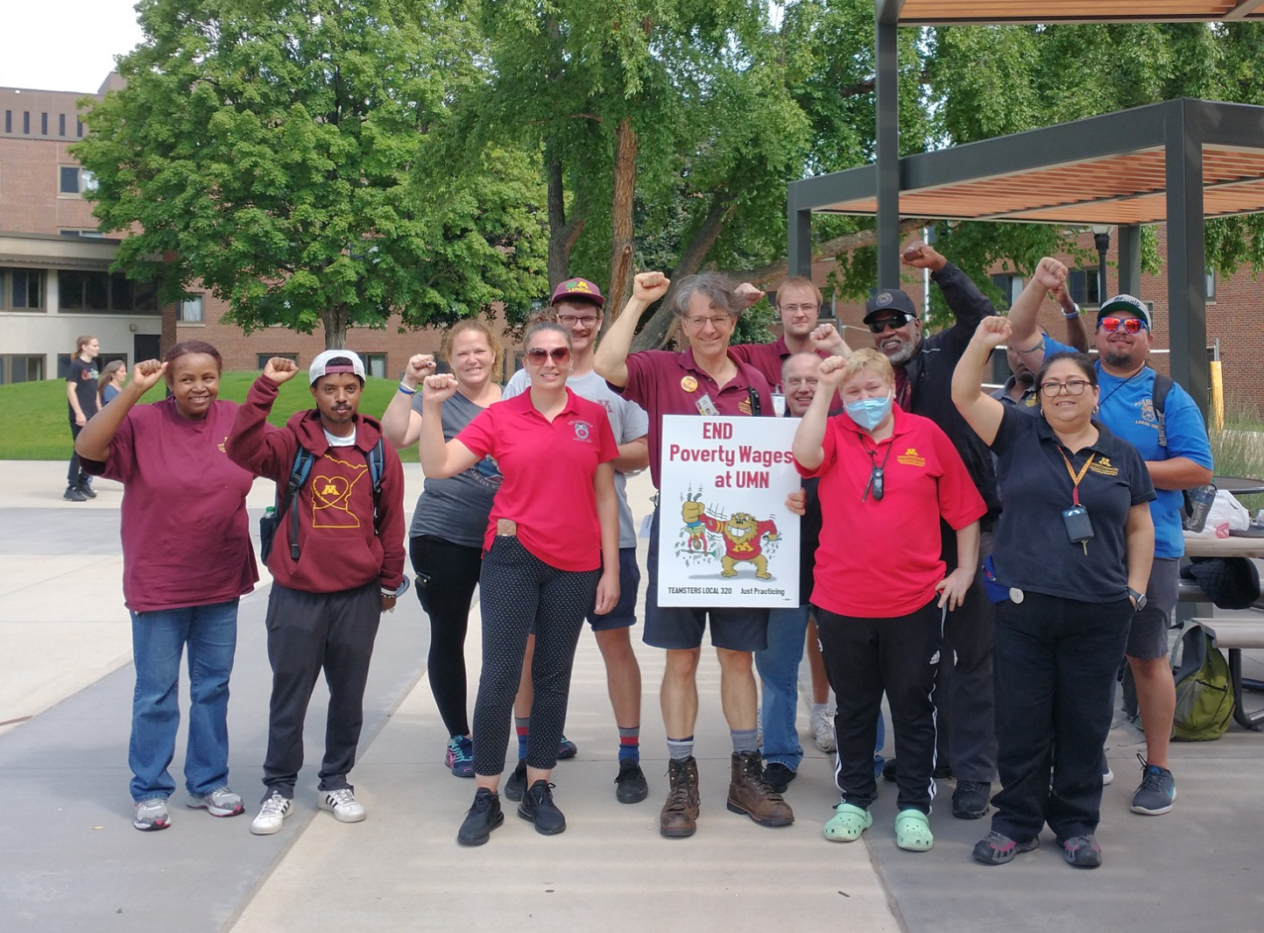Press Releases
University of Minnesota Service Workers Prepare for Unprecedented Strike

Teamsters Hold Practice Picket to Demand an End to Poverty Wages, Discrimination, and Greenwashing
Press Contact: Matt McQuaid Phone: (617) 894-0669 Email: mmcquaid@teamster.org
(MINNEAPOLIS) – Today, hundreds of University of Minnesota (UMN) service workers represented by Teamsters Local 320 protested on the school’s campus to demand an end to poverty wages and abusive employment practices.
“It’s shameful that the University of Minnesota has a billion dollars left over at the end of the year, coming off the backs of workers who are homeless and don’t have enough money for food,” said Brian Aldes, Local 320 Secretary-Treasurer. “The State of Minnesota, UMN President Joan Gabel, and the Board of Regents need to understand that if our brothers and sisters at the university are forced to strike, the Teamsters are ready to take up this fight, no matter the cost.”
The protesting service workers were joined by student and environmental groups, faculty members, community leaders, and elected officials—including Minnesota Speaker of the House Melissa Hortman and Minnesota Workforce and Business Development Chair Mohamud Noor.
Local 320 represents 1,500 workers at UMN who clean buildings, service dormitories, maintain grounds, prepare food, maintain HVAC systems, care for research animals, drive trucks, and perform other activities across the university’s five campuses. Many of the workers are Black, including immigrants from Somalia, Ethiopia, Eritrea, and other East African countries.
According to a recent survey of more than 450 current and former UMN service workers that was conducted by Local 320, more than 62 percent reported not earning enough money to pay for basic expenses every month. Almost 12 percent reported experiencing homelessness at least once while working at the university.
The Local 320 survey results also indicate UMN workers are concerned about discriminatory treatment. Twenty-eight percent of workers of color “strongly agree” or “agree” that their race, nationality, or ethnic group affects the way their supervisor treats them. Nearly half of female and non-binary workers report that university supervisors discriminate against workers based on their race, nationality, gender, religion, disability, or sexual orientation at least some of the time.
A study on compensation from UMN’s Office of Human Resources shows that job salaries for campus operations positions are, on average, 13 percent below the market median. It also showed about three-quarters of workers’ salaries are below the market salary median.
“Right now, wages are so low and costs so high that UMN cannot recruit and retain staff for key departments,” Aldes said.
Workers are concerned about being able to properly care for medical research animals on campus and properly staff food service operations. Due to inadequate staffing, the UMN waste reduction program cannot be implemented effectively. This results in large amounts of reusable waste being burned in the Hennepin Energy Recovery Center incinerator, which has been criticized for polluting an area of the city already full of racial and economic disparities.
“If UMN doesn’t change its behavior at the bargaining table, we anticipate our members taking a strike authorization vote in the coming weeks,” Aldes said.
Founded in 1903, the International Brotherhood of Teamsters represents 1.2 million hardworking men and women throughout the United States, Canada, and Puerto Rico. Visit www.teamster.org for more information. Follow us on Twitter @Teamsters and “like” us on Facebook at www.facebook.com/teamsters.
###